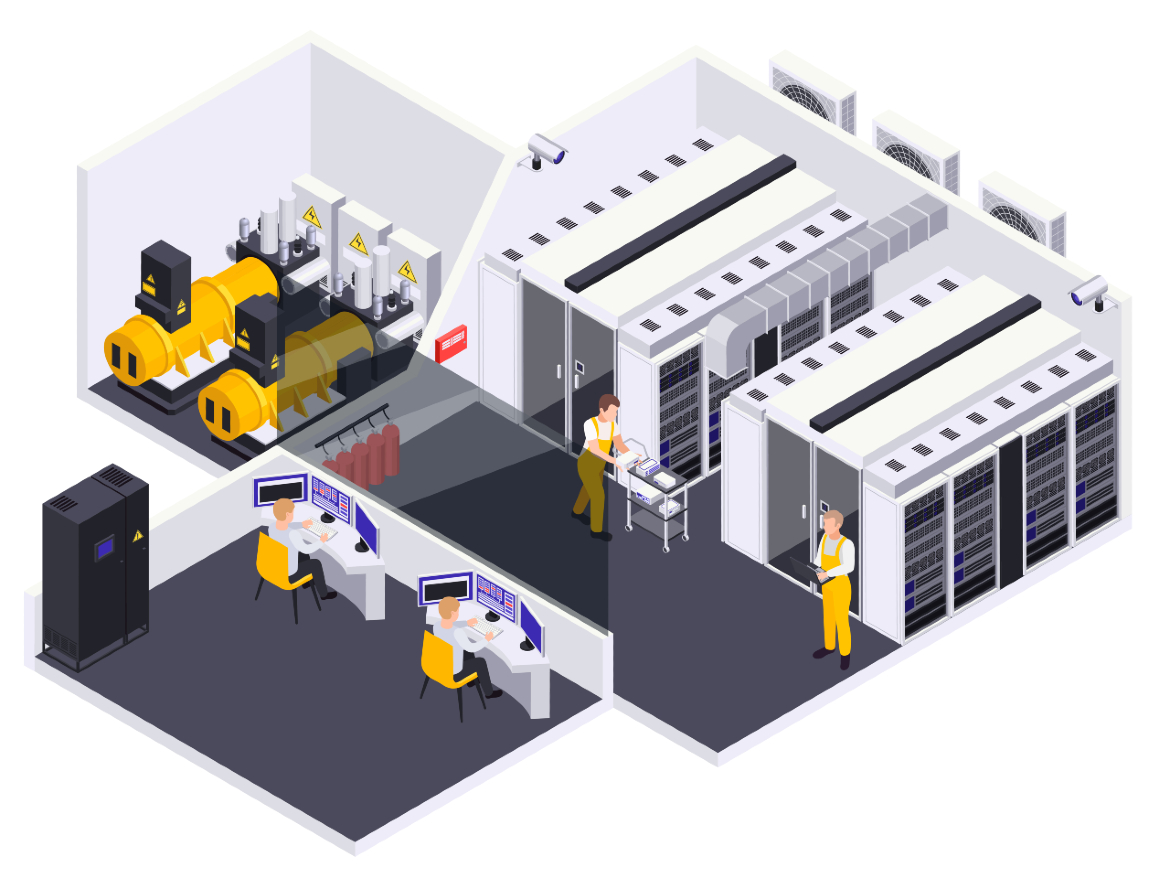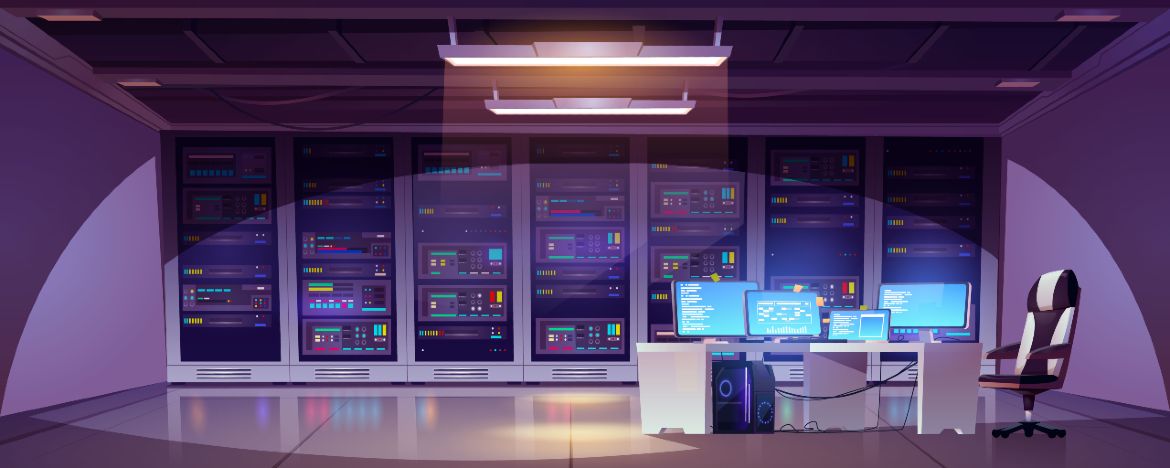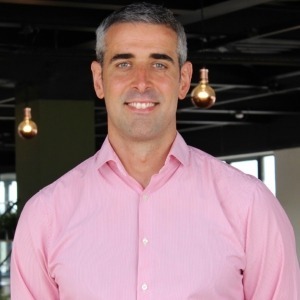Meet Joe – A Data Centre Manager Looking To Hire You
Last year we gave you a step by step guide on how to secure a job in a data centre. Today, I want to revisit this topic and add some extra insight and information that will help you.
The data centre market in Ireland is growing and has attracted a lot of media attention in recent months. For someone who might want to build a career in IT, then considering a job in IT infrastructure, specifically data centres is a smart play. With the proliferation of data across the globe, the need for data centres has never been stronger. Also, there really are some great career path opportunities.

When we last wrote about interview tips for securing a job in a data centre, we focused on the following steps:
-
Putting together a tailored CV
-
Engaging with an IT recruiter
-
The job interview
-
The feedback loop
-
Success!
You can read more about it here Top Interview Tips to Secure A Job in A Data Centre.
Today I want to build on these very relevant and well articulated points. I want to try to give some insight into what the hiring managers in data centres and thinking and feeling when they go out to interview candidates.
Let’s start by building a persona. This is a made up profile of a person who really fits the mould of a hiring manager within a data centre.
I would like you to meet… Joe
Who is Joe?
Joe is a male and is forty five years old. He is a Data Centre Manager and has been in the role for four years now. He started out as a Data Centre Technician and got into the role as he grew up tinkering with computer hardware and liked to change parts of computers and build them again. He spent some time when he was younger working in retail selling computers, printers and other devices before moving into the data centre industry.
Joe has two children (a boy aged 12 and a girl aged 8). He lives in Castleknock and he enjoys bringing his children to their various sporting activities at the weekend but also getting out on his bike for a long cycle too.
What does Joe worry about last thing before he goes to sleep?
Pain point #1: Joe worries about the large scale server decommissioning project he has coming down the line in a month’s time and whether or not he can get the staff to complete it on time.
Pain point #2: Joe worries about the five alarms that went off this week in his data centre and why the staff don’t adhere to the very clear (but very strict) protocols when moving around and working in the data centres (especially red zones).
Pain point #3: Joe worries about the number of tickets his teams are handling and why they are below the company average across other data centres and how he might get the speed up, without causing more alarms.
When Joe is hiring for new staff, what is really important to him?
He needs to know that the people coming in will have the knowledge, speed and accuracy to be a strong worker. Joe will really value candidates who have a can-do attitude and strong work ethic. He needs people who will follow instructions very precisely and not cut corners.
Why is this important?
Data centres are very unique environments where considerations like security, uptime and performance of servers is absolutely vital. For example, consider a company like Netflix. If their servers failed, customers would not be able to watch their shows and this is a massive issue for Netflix. Therefore the data centres who host their servers need to be working 24-7-365.
There cannot be downtime, there cannot be a security breach and there cannot be a slowdown in performance causing buffering or other issues. It is the Data Centre Manager’s job to ensure that the data centre can guarantee these things, and it’s written into the contracts they agree with customers.

What does that mean for you, as a candidate going for an interview for a job in a data centre?
Demonstrate your ability to meet the unwritten requirements of the role, during the interview
-
Work ethic – Try to give examples of where you can show that you can work fast, but never to the detriment of quality. Talk about the love of achieving tasks and the focus you can give to a technical challenge.
-
Attention to detail – Demonstrate your attention to detail. This starts with your CV by the way. Please ensure there are no spelling or grammatical errors in your CV. When giving answers, don’t be vague or unsure. Try to be precise and focused in your answers. It’s always a balance act between giving too short an answer and not expanding enough.
Tip: When you have given an answer to a question, ask the interviewer ‘does that answer your question or would you like a bit more detail?’. This gives the interviewer the opportunity to move on or dig deeper. It ensures you are on the right track. This tip works in cases where you might be waffling too much also.
-
Following instructions – Data centres are not places for mavericks who want to do whatever they like, however they like. You will be tossed out of there before you can say colocation.
There are very strict protocols in data centres. These could relate to how you go through doors (yes they will show you onboarding videos on how to go through a door if you secure the job), to how you remove the casing on the side of a server rack and everything in between.
These protocols are there for health and safety reasons, but also to ensure the security and uptime of servers. For someone working in a data centre, you need to be able to clearly understand and follow these protocols.
-
Communication – Joe needs to know that you can understand what instructions you may receive when working in a data centre. This can be the difference between getting a ticket (a task that needs to be completed) efficiently resolved, or an alarm going off that will derail the day and bring in the security team, the management and other people to understand what happened, why and what to do about it.
It might even cause you the job. Too many alarms and they will ask you to leave the data centre. They take these incredibly seriously.
Tip: Communication is not just about understanding, but using common sense to go and get clarity when in a situation that might be ambiguous.
E.g. Let’s say you are in a data centre and think there might be a better way to move some servers from one room to another. You should check with a Manager to ensure that what you are thinking is ok, as there might be other considerations or existing protocols that you are not aware of. But if you can demonstrate at an interview that you are someone who would always look to find better ways of doing things, but also doing it in a way that ensures no alarms will go off, Joe will really like this.
-
Questions – In any interview, asking good questions will always give a good impression. For example, if Joe hasn’t asked you a question that has allowed you to use a pre-prepared example about how you can follow clear instructions, try to bring it in here. E.g. ‘When I was working in XXX my role required me to follow very strict protocols, which I enjoyed, is that similar here?’.
This will open up the conversation to this and allow you to then discuss your example in more depth. Another example would be to ask ‘what are the qualities you see in those who get promoted out of this role into more senior positions?’. This will allow Joe to speak to some of the innate attributes that you can then discuss and give examples of how you also demonstrate these things.
-
Show your desire – At the end of the interview, after you have asked all your questions and are about to leave, let Joe know you want the job. Say something like ‘thank you for this opportunity, I just wanted to say that I genuinely feel that I could do very well at this job and I would love to work with you and the team’.
Showing this keen attitude can make all the difference. It’s a little bit of self promotion, which might make you uncomfortable, but I can guarantee you that if it comes down to two candidates, Joe will give it to the person who wants it more.
Tip: Send Joe an email after the interview, when you get home, to again let him know how much you enjoyed meeting him and really hope that you secure the role as you are really excited about it. Of course, ensure that you find the fine line between keenness and bombarding the hiring manager as well.
I hope that these insights into the persona of Joe the Data Centre Manager are useful and also the tips on areas to focus on during the interview.
If the information in this blog caught your attention and you do think a career in a Data Centre is something you would be interested in and would like to discuss this further, reach out to us via our website and be kept up to date with our newest Data Centre jobs in Ireland.

